
This is a simple lesson to introduce the 5 Themes of Geography to your students.
- Subject:
- Cultural Geography
- Physical Geography
- Material Type:
- Homework/Assignment
- Author:
- Ghulam Nabi
- Date Added:
- 02/13/2023

This is a simple lesson to introduce the 5 Themes of Geography to your students.
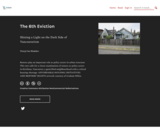
Renters play an important role as policy actors in urban structure. This text calls for a closer examination of renters as policy actors in Kitsilano, Vancouver, a gentrified neighbourhood with a critical housing shortage. AFFORDABLE-HOUSING INITIATIVES AND RENTERS’ RIGHTS artwork courtesy of Graham White.

This is a discussion-based interactive seminar on the two major issues that affect Sub-Saharan Africa: HIV/AIDS and Poverty. AIDS and Poverty, seemingly different concepts, are more inter-related to each other in Africa than in any other continent. As MIT students, we feel it is important to engage ourselves in a dynamic discussion on the relation between the two - how to fight one and how to solve the other.
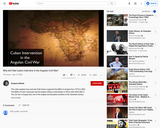
This video explains how and why Fidel Castro supported the MPLA in Angola from 1975 to 2002. The Battle of Cuito Cuanavale was the largest military confrontation in Africa after World War II. The civil war in Angola was one of the longest and bloodiest conflicts of the twentieth century.
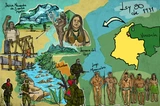
The conflict in Colombia has established itself as the longest and one of the most complex armed conflicts in the world. Since colonial times, the country's history has been marked by violence, a racist violence that has led to extreme inequality in the distribution of wealth. This inequality in Colombia persists to this day and is a central point in the numerous violent clashes.
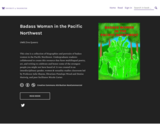
This zine is a collection of biographies and portraits of badass womxn in the Pacific Northwest. Undergraduate students collaborated to create this resource that fuses multilingual poetry, art, and writing to celebrate and honor some of the strongest people you might not have heard of.
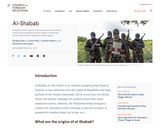
The Council on Foreign Relations (CFR) presents a backgrounder on Al-Shabab; an Islamist insurgent group that remains capable of carrying out massive attacks in Somalia and surrounding countries despite a decade-long African Union offensive against the Islamist group. CFR Backgrounders provide an in-depth analysis on current political and economic issues.
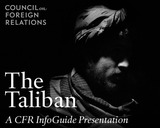
The Council of Foreign Relations (CFR) InfoGuide on The Taliban examines the two Talibans, in Afghanistan and Pakistan, and the consequences for the region. CFR InfoGuides are a multimedia series to promote understanding of complex foreign policy issues.

Casa y Comunidad: Latino/a/x Housing in Oregon is an oral history-based limited documentary series about salient housing access issues affecting the Latino/a/x community in Oregon, one of the fastest-growing immigrant gateways for Mexican and Central American migrants in the U.S.
In Summer 2022, an all-Latino/a/x team set out to document the everyday realities of the Latino/a/x community as they seek to satisfy one of the most basic of human needs—housing. The team covered the seven major regions of the State of Oregon, each of which presents a unique housing challenge.
We encourage you to learn more about this topic. Together, we can make Oregon a better place to call home.

This is a course for those who are interested in the challenge posed by massive and persistent world poverty, and are hopeful that economists might have something useful to say about this challenge. The questions we will take up include: Is extreme poverty a thing of the past? What is economic life like when living under a dollar per day? Why do some countries grow fast and others fall further behind? Does growth help the poor? Are famines unavoidable? How can we end child labor—or should we? How do we make schools work for poor citizens? How do we deal with the disease burden? Is micro finance invaluable or overrated? Without property rights, is life destined to be “nasty, brutish and short”? Has globalization been good to the poor? Should we leave economic development to the market? Should we leave economic development to non-governmental organizations (NGOs)? Does foreign aid help or hinder? Where is the best place to intervene?
MITx Online Version
This course is part of the Micromaster’s Program in Data, Economics, and Design of Policy through MITx Online. The course is entirely free to audit, though learners have the option to pay a fee, which is based on the learner’s ability to pay, to take the proctored exam, and earn a course certificate. To access the course, create an MITx Online account and enroll in the course 14.73x The Challenges of Global Poverty.
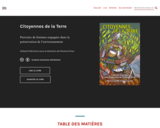
Comment s’engager dans des actions en faveur de la vie et du bien commun en cette période marquée par des problèmes d’envergure planétaire tels que le réchauffement climatique, la pollution accrue, l’acidification des océans ou les menaces sur la biodiversité? Des gouvernements tentent tant bien que mal de s’entendre pour agir.
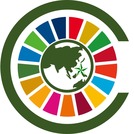
These are two resources for the COAST Program: The modules and the Google Map.

In this course the conquest and colonization of the Americas is considered, with special attention to the struggles of native peoples in Guatemala, Canada, Brazil, Panama, and colonial New England. In two segments of the course-one devoted to the Jesuit missionization of the Huron in the 1630s, the other to struggles between the government of Panama and the Kuna between 1900 and 1925-students examine primary documents such as letters, reports, and court records, to draw their own conclusions. Attention focuses on how we know about and represent past eras and other peoples, as well as on the history of struggles between native Americans and Europeans.

Central to our era is the gradual movement of all the world’s regions toward a uniform standard of economic and political development. In this class we will read a variety of recent narratives that partake of, dissent from, or contribute to this story, ranging from novels and poems to World Bank and IMF statements and National Geographic reports. We will seek to understand the many motives and voices – sometimes congruent, sometimes clashing – that are currently engaged in producing accounts of people in the developing world: their hardships, laughter, and courage, and how they help themselves and are helped by outsiders who may or may not have philanthropic motives. Readings will include literature by J. G. Ballard, Jamaica Kincaid, Rohinton Mistry, and John le Carré, as well as policy documents, newspaper and magazine articles, and the Web sites of a variety of trade and development commissions and organizations.

Creative Commons Presentation
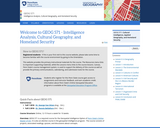
GEOG 571 explores the relationships between culture and civil security and the process of geographically analyzing social, political, economic, and demographic information to understand human history, institutions, and behaviors. It is an elective course in the Geospatial Intelligence Certificate, the Intercollege Master of Professional Studies (iMPS-HLS), and the Master of Geographic Information Systems degree program that is offered exclusively through Penn State's World Campus. It is also one of the optional capstone courses that leads to Penn State's Postbaccalaureate Certificate in GIS. The course consists of projects, associated readings, and exams.

In the trilogy of D-Lab courses, D-Lab: Dissemination focuses on disseminating innovations among underserved communities, especially in developing countries. Students acquire skills related to building partnerships and piloting, financing, implementing, and scaling-up a selected innovation for the common good. The course is structured around MIT and outside competitions. Teams develop an idea, project or (social) business plan that is “ready to roll” by term’s end. Course includes an on-line forum discussion board, student-led case studies and a final proposal or business plan for realizing your dream innovation.

D-Lab: Energy offers a hands-on, project-based approach that engages students in understanding and addressing the applications of small-scale, sustainable energy technology in developing countries where compact, robust, low-cost systems for generating power are required. Projects may include micro-hydro, solar, or wind turbine generators along with theoretical analysis, design, prototype construction, evaluation and implementation. Students will have the opportunity both to travel to Nicaragua during spring break to identify and implement projects.
D-Lab: Energy is part of MIT’s D-Lab program, which fosters the development of appropriate technologies and sustainable solutions within the framework of international development.
This course is an elective subject in MIT’s undergraduate Energy Studies Minor. This Institute-wide program complements the deep expertise obtained in any major with a broad understanding of the interlinked realms of science, technology, and social sciences as they relate to energy and associated environmental challenges.

D-Lab Development addresses issues of technological improvements at the micro level for developing countries—in particular, how the quality of life of low-income households can be improved by adaptation of low cost and sustainable technologies. Discussion of development issues as well as project implementation challenges are addressed through lectures, case studies, guest speakers and laboratory exercises. Students form project teams to partner with mostly local level organizations in developing countries, and formulate plans for an IAP site visit. (Previous field sites include Ghana, Brazil, Honduras and India.) Project team meetings focus on developing specific projects and include cultural, social, political, environmental and economic overviews of the countries and localities to be visited as well as an introduction to the local languages.

D-Lab: Design addresses problems faced by undeserved communities with a focus on design, experimentation, and prototyping processes. Particular attention is placed on constraints faced when designing for developing countries. Multidisciplinary teams work on semester-long projects in collaboration with community partners, field practitioners, and experts in relevant fields. Topics covered include design for affordability, design for manufacture, sustainability, and strategies for working effectively with community partners and customers. Students may continue projects begun in EC.701J D-Lab I: Development.